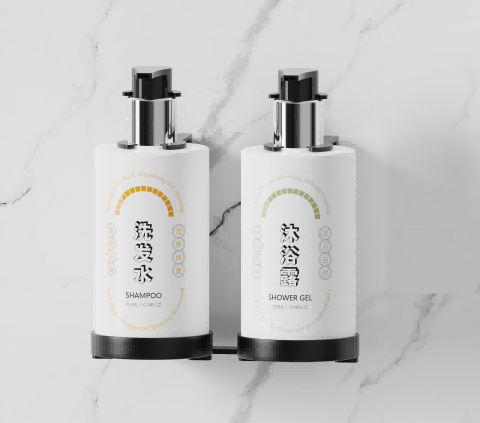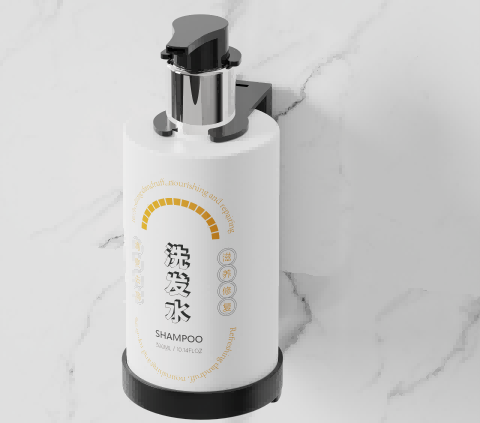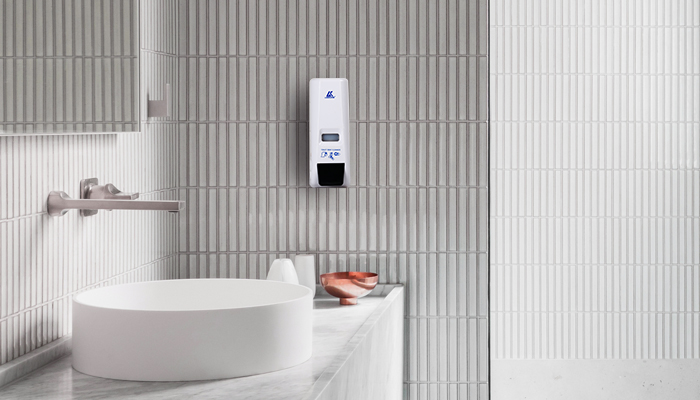The Looming Storm: How a New Section 232 Investigation Could Reshape the Global Hotel Supplies Industry
The global hotel supplies industry, a complex and intricately woven web of manufacturers, exporters, importers, and distributors, is once again holding its breath. The recent announcement by the U.S. Department of Commerce to initiate a new wave of investigations under Section 232 of the Trade Expansion Act of 1962 has sent ripples of anxiety through the international trade community. For those in the business of furnishing hotels—from grand lobbies to minimalist guest rooms—this is not an unfamiliar alarm. The memory of the 2018 Section 232 tariffs on steel and aluminum, which sent shockwaves through the sector, is still fresh.
This blog post delves deep into the potential implications of this new investigation. We will dissect what Section 232 means, explore its specific impact on the hotel supplies industry , and use the stainless steel soap dispenser as a detailed case study to illustrate the tangible effects on product costing, supply chains, and competitive dynamics. For businesses engaged in foreign trade , understanding these developments is not just beneficial—it is critical for survival and strategic planning in an increasingly volatile global market.
Part 1: Unpacking Section 232–The “National Security” Trump Card
At its core, Section 232 is a U.S. trade law that empowers the Secretary of Commerce to investigate whether certain imports are threatening to impair U.S. national security. Unlike anti-dumping or countervailing duty cases, which target “unfair” pricing or subsidies, Section 232 is uniquely broad and potent. It operates on the premise that a nation’s economic vitality is integral to its security, and therefore, the weakening of a domestic industry vital to national defense—even indirectly—can be grounds for action.
The process typically unfolds as follows:
- Investigation Launch: The Commerce Department can self-initiate an investigation or act upon a request from another government agency or a domestic industry.
- Analysis:The Department conducts a thorough review, considering the quantity and nature of the imports, the health of the domestic industry, and the impact on national security.
- Report to the President: Within 270 days, the Secretary submits a report to the President with findings and recommendations.
- Presidential Action:The President has broad authority to decide on a course of action. Options include imposing tariffs (the most common outcome), setting import quotas, or negotiating agreements with exporting countries to limit volumes. The key point is the discretion is vast.
The 2018 investigation into steel and aluminum resulted in global tariffs of 25% and 10%, respectively. The rationale was that the decline of these primary metal industries was a national security risk, as they are essential for building military equipment, infrastructure, and critical supply chains. The new investigation is rumored to be targeting a broader range of downstream products—precisely the category into which most hotel supplies fall.
Part 2: The Hotel Supplies Industry–A Globalized Ecosystem Under the Microscope
The hotel supplies industry is a quintessential example of modern globalization. It thrives on intricate, cost-effective, and efficient international supply chains. A single hotel project might source:
* Furniture: From Vietnam or Indonesia.
* Textiles (linens, towels): From Pakistan, India, or Turkey.
* Amenities (shampoo, soap): From specialized chemical companies, often in the U.S. or Europe.
* Hardware and Fixtures: This is the critical category for our discussion. China has become a manufacturing powerhouse for durable, well-designed, and cost-competitive fixtures like faucets, showerheads, towel racks, and, centrally, stainless steel soap dispensers .
These products are often made from steel and aluminum. The 2018 tariffs already increased the cost of the raw materials for manufacturers worldwide. However, a new Section 232 investigation targeting *finished goods* would represent a seismic escalation. It would not just increase the cost of raw steel but would slap a direct tariff on the final product imported into the U.S.
The U.S. hospitality market is one of the largest in the world. For foreign trade businesses specializing in hotel supplies, losing competitive access to this market is an existential threat. The entire ecosystem—from the Chinese factory producing a stainless steel soap dispenser to the German designer who specified it, to the U.S.-based importer and distributor, and finally to the hotel owner in Miami—is now facing profound uncertainty.
Part 3: A Case Study in Steel–The Stainless Steel Soap Dispenser
Let’s zoom in on a single, ubiquitous item: the stainless steel soap dispenser . It is a perfect microcosm of the challenges and dynamics at play.
Anatomy of a Product and Its Cost:
- Raw Material:The primary component is, of course, stainless steel. The 2018 Section 232 tariffs already added a 25% cost to the steel sheet used by the manufacturer. This cost was partially absorbed by the factory and partially passed on to buyers.
- Manufacturing & Labor:This involves cutting, welding, polishing, electroplating (if needed), and assembling the pump mechanism. China’s advantage lies in its mature industrial clusters, skilled labor for metalwork, and economies of scale.
- Components:The internal pump, springs, and seals are often sourced from specialized sub-suppliers, which may be in other Asian countries.
- Logistics & Shipping:The finished dispensers are packed, palletized, and shipped via ocean freight to the U.S.
- Landed Cost & Markup:The U.S. importer pays the purchase price plus shipping and insurance. Upon arrival, they pay existing duties (which are typically low for finished fixtures, around 3-5%). They then add their margin before selling to distributors or large hotel groups.
The Impact of a New 232 Tariff on Stainless Steel Fixtures:
Imagine a new Section 232 investigation concludes that imports of finished stainless steel products threaten the economic viability of U.S. metal fabrication plants (which might supply, for instance, the defense sector). The President decides to impose a 15% tariff on all imported stainless steel sanitary ware, including our soap dispenser .
* Scenario 1: The Direct Cost Shock.
* Pre-Tariff Landed Cost for Importer: $10 per unit.
* New 15% Section 232 Tariff: $1.50 per unit.
* New Landed Cost: $11.50 per unit.
* This 15% increase must be managed. The importer can:
* Absorb the Cost: Eroding their profit margin, potentially making the product line unsustainable.
* Pass it On: Increase the price to the hotel. A large hotel chain ordering 10,000 dispensers now faces a $15,000 increase in cost for a single item.
* A Combination: Split the pain, which is the most likely outcome.
* Scenario 2: Supply Chain Disruption and Sourcing Shifts.
* U.S. importers will be forced to urgently seek alternative suppliers outside of China, perhaps in Vietnam, Mexico, or Turkey. However, these countries may lack the same scale, quality control, or capacity, leading to delays and potentially higher base costs even before the tariff.
* This creates a “whack-a-mole” effect. If production simply shifts to Vietnam, and the U.S. determines that Vietnam is merely a trans-shipment point for Chinese components, it could lead to new tariffs or rules of origin investigations.
* Scenario 3: The “Domestic Production” Mirage.
The stated goal of Section 232 is to bolster U.S. national security by strengthening domestic industry. However, for a product like a stainless steel soap dispenser , the entire supply chain—from the specialized steel alloys to the precision plastic pumps—is globally integrated.
Re-shoring this production is incredibly difficult and expensive. The capital investment, retraining of a workforce, and higher operating costs would mean a U.S.-made dispenser could cost 2-3 times the current import price, making it unfeasible for most hotel projects with tight budgets. The likely outcome is not a resurgence in U.S. manufacturing, but simply higher costs for American businesses (hotels) and consumers (guests).
Part 4: Strategic Responses for the Foreign Trade Ecosystem
For players in the hotel supplies foreign trade arena, proactive strategy is essential. Waiting for the investigation to conclude is a recipe for reactive panic.
For Manufacturers (e.g., in China):
- Diversify, Diversify, Diversify:This is the number one priority. Accelerate plans to establish manufacturing footprints in other countries, such as Southeast Asia or Eastern Europe, to create tariff-neutral sourcing options for your clients.
- Value Engineering:Work on developing alternative products that use different materials or designs that might fall outside a potential tariff classification. Could a composite material be used for certain parts?
- Deepen Client Relationships:Communicate transparently with your U.S. importers about your contingency plans. Become a strategic partner, not just a supplier.
For U.S. Importers & Distributors:
- Supply Chain Mapping:Conduct a thorough audit of your product lines. Identify every item that could be vulnerable to a metals-based Section 232 The humble stainless steel soap dispenser is just the start; consider towel bars, trash cans, faucets, and door handles.
- Inventory Management:Consider strategic stockpiling of high-risk items. While costly, having a 6-12 month buffer could provide breathing room to find new suppliers if tariffs hit.
- Price Renegotiation and Hedging:Engage in frank discussions with your overseas suppliers about sharing the potential cost burden. Explore contracts that include tariff escalation clauses.
- Communicate with Customers:Warn your hotel group clients about potential price increases. Help them understand the external geopolitical factors driving these changes. Transparency builds trust.
For Hoteliers and End-Users:
- Budgetary Flexibility:For new builds and renovations, build contingency funds into budgets specifically for potential tariff-related cost increases.
- Consider Alternative Specifications:Be open to your designers and purchasers proposing alternative products or materials that achieve the same aesthetic and functional goal but are less exposed to trade risks.
- Long-Term Planning:Lock in pricing with distributors as early as possible, with an understanding of potential adjustments based on government action.
Conclusion: Navigating the New Abnormal in Global Trade
The renewed use of Section 232 signifies a permanent shift away from the post-WWII consensus on multilateral, rule-based trade towards a more unilateral and security-driven approach. For the hotel supplies industry , this is not a temporary disruption but a “new abnormal.”
The stainless steel soap dispenser is a symbol of this new reality—a seemingly simple object caught in the crosshairs of complex geopolitical and economic forces. The coming months will be critical. The Commerce Department’s investigation, its findings, and the President’s response will set the course for the next chapter of foreign trade .
The businesses that will thrive are those that see this not just as a threat, but as an imperative to build more resilient, agile, and diversified supply chains. Agility, transparency, and strategic partnerships will be the most valuable currencies in this uncertain landscape. The storm clouds are gathering; the time to prepare is now.





